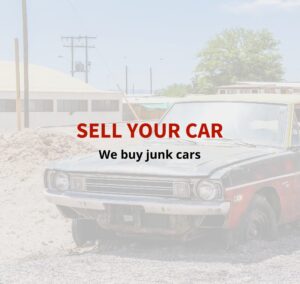Most auto salvage yards (a.k.a. junkyards) own a large inventory of vehicles that have a “salvage certificate”. Why the certificate was issued varies from car to car, but the process of receiving it is roughly the same in each state and involves the following steps.
- The insurance company performs an inspection of damage
- Cost of fixing damage exceeds at least 70% of the car’s value
- Driver’s insurance company declares the vehicle a “total loss”
- State motor vehicle agency issues a salvage certificate
After the car receives a salvage certificate, it can’t be driven, sold, or registered, unless it’s repaired. After repairs are made, the vehicle must pass safety inspection before it can receive a new title. Unlike the certificate, the title allows the car to be driven, sold, and registered. To help drivers make smart car purchases, the title states the vehicle has been salvaged and rebuilt.
Reasons for Salvage Titles
Now that we’ve looked at how auto salvage titles are created, let’s look at why they’re created. Listing all of the reasons why a car could be salvaged would require a book, but there are some types of damage state motor vehicle agencies see more often than other types, particularly:
- Flood damage
- Damage from wreck
- Hail damage
- Vandalism
- Fire damage
- Damage from theft
Salvage vehicles sell for significantly less than pre-owned, non-salvage vehicles, which makes them attractive to drivers who need to buy a car on a limited budget. Should you consider purchasing a salvage car?
The answer depends on two things: the type of damage that resulted in the salvage status, and how you plan to use the car. For example, there’s a big difference between superficial hail damage and damage from a wreck that cracks the engine block. There’s also a major difference between driving the car many miles daily and using it as a backup vehicle. The less wear, the better.
Some people drive a salvage car and experience no unusual mechanical or safety issues. However, because auto salvage vehicles are widely seen as less reliable than non-salvage vehicles, consumers are generally advised to avoid them. Salvage cars are priced to sell, but they should ideally be purchased as a method of last resort if you need a car for daily commuting.
Who We Are
Wrench-A-Part is a professionally operated junkyard with four Texas locations in Austin, Belton, Holland, and Lubbock. We sell used auto parts and used vehicles that are still in great shape. To inquire about selling us an end-of-life vehicle or a pre-owned automobile, please visit to our contact page. We look forward to hearing from you!

